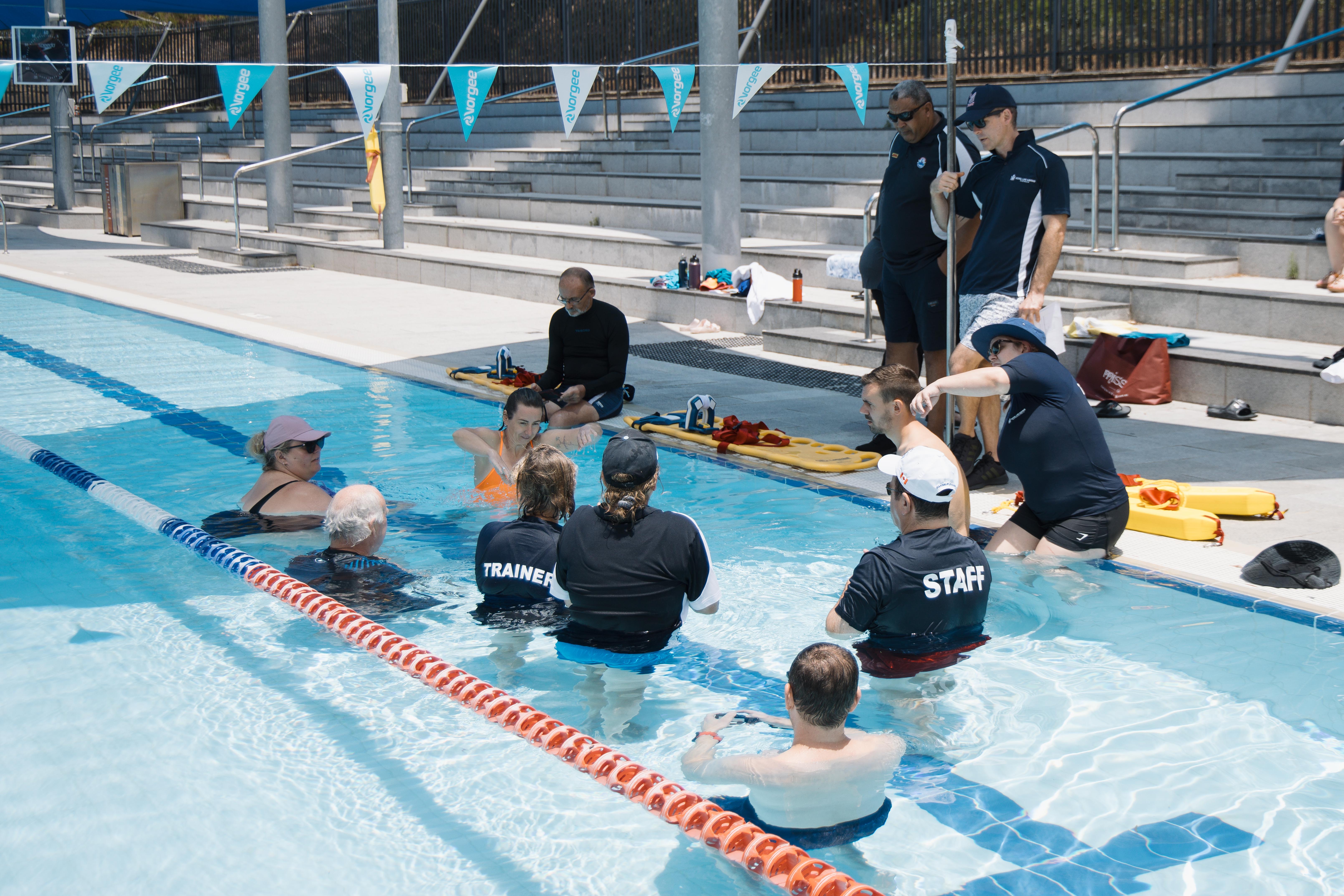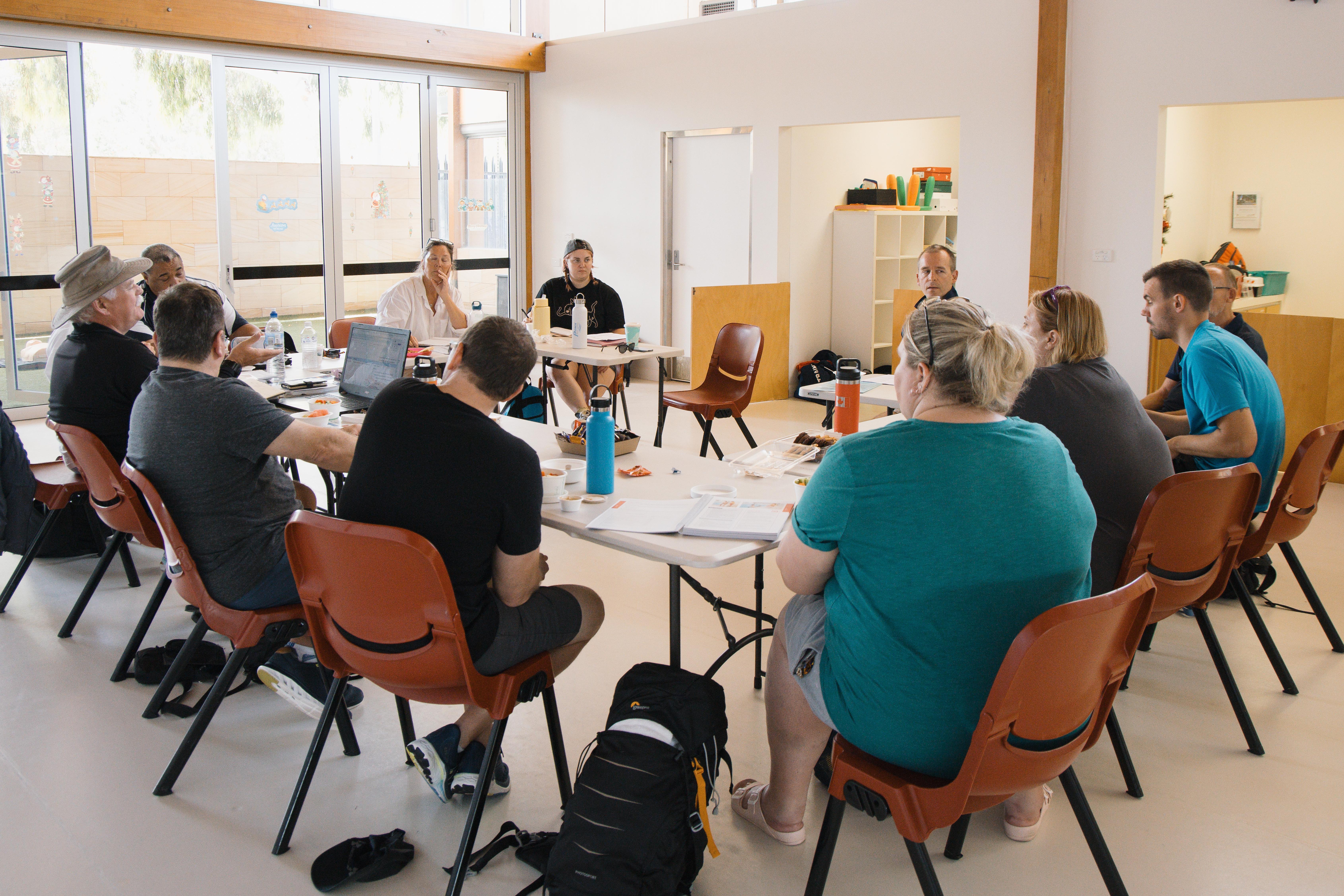Published 12 June 2025

Pool Lifeguard Skills Without Borders: New Pathways to Work Across Royal Life Saving Society Commonwealth Nations
Pool lifeguards with an Australian qualification now have an easier path to work in the UK, Canada and South Africa, thanks to the RLSS Commonwealth Pool Lifeguard Reciprocity Project – a joint effort between Royal Life Saving Society member organisations in Australia, Canada, South Africa and the United Kingdom.
By closely comparing each country’s pool lifeguard training programs, the project team has mapped the similarities and differences, helping to identify what’s required to support lifeguards transitioning between countries. The result? A streamlined way for lifeguards to get locally certified and job-ready when they head overseas.
Shaun Jackson, National Manager – Training and Workforce Development at Royal Life Saving Society – Australia, said, “We know that pool lifeguards are in high demand over the summer months in the UK, Canada and South Africa and the program will allow Australian qualified pool lifeguards to have a clear idea of the specific and tailored training required in each of these countries before they set off.”
For lifeguards looking to work in Australia, reciprocity options fall under the framework of Recognition of Prior Learning (RPL), which means international applications will need to provide evidence of their training, skills and experience to a Royal Life Saving Registered Training Organisation (RTO) for review and assessment.
“We’ve had a growing number of lifeguards express interest in working abroad, and we wanted to make sure there was a fair and efficient way for them to do so,” said Nick Grazier, Senior Head of Commercial at RLSS UK. “This project helps remove unnecessary barriers while still making sure everyone meets the high standards required to keep pool users safe.”
 Wendy Schultenkamper, Chief Operations Officer at Lifesaving Society Canada, added, “The pool environment may look different in each country, but the core skills of lifeguarding are universal. This initiative gives lifeguards the chance to build on what they know, adapt to a new setting, and potentially be working to keep people safe around water more quickly.”
Wendy Schultenkamper, Chief Operations Officer at Lifesaving Society Canada, added, “The pool environment may look different in each country, but the core skills of lifeguarding are universal. This initiative gives lifeguards the chance to build on what they know, adapt to a new setting, and potentially be working to keep people safe around water more quickly.”
Melvyn Shaw, Director Lifesaving South Africa, added “Working closely with Royal Life Saving colleagues in putting together the program was a great experience, and I’m excited to see the opportunities it can offer for lifeguards from South Africa to travel abroad, but also for international lifeguards to experience living and working in South Africa.”
Of course, applicants across all countries also need to make sure they have researched the specific visa requirements for each destination country and apply for a visa that will enable vocational study and employment in the destination country.
To find out more or to apply for lifeguard reciprocity, visit the Commonwealth Life Saving website
